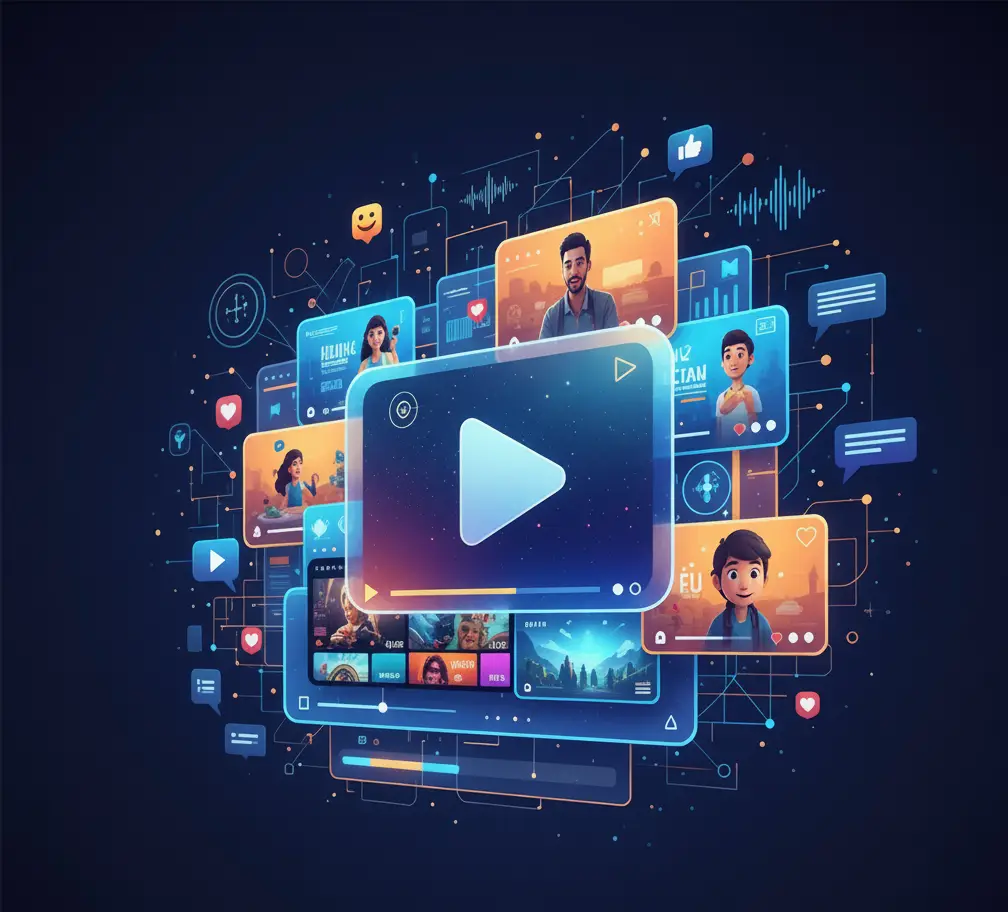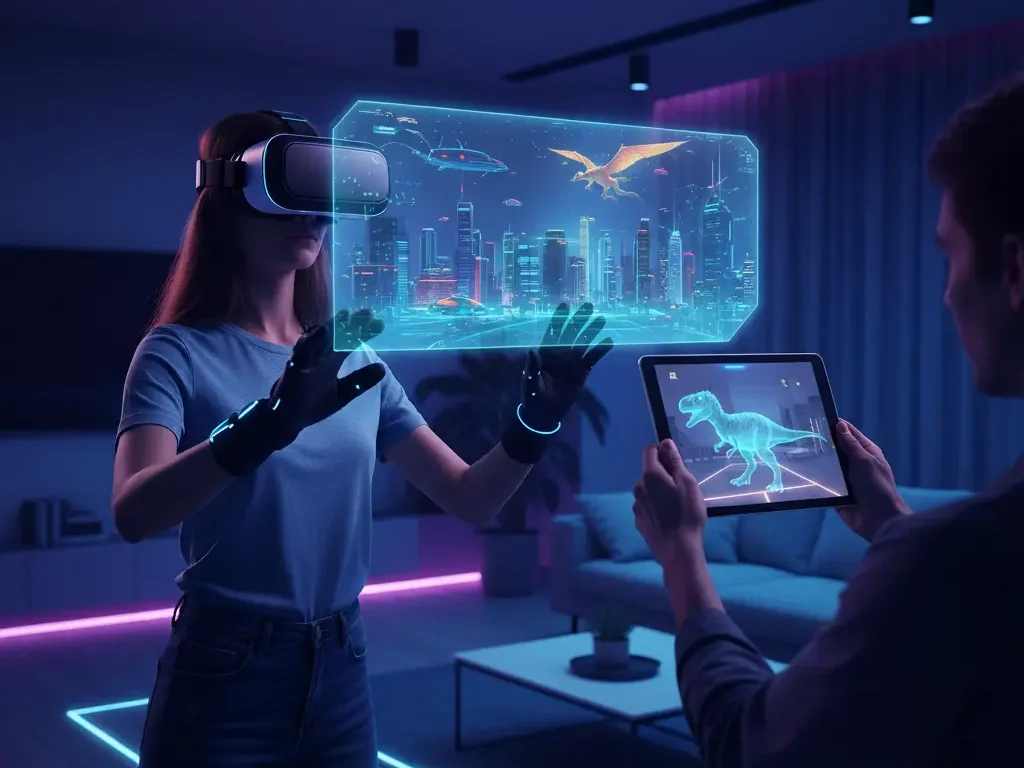
Multimedia content has become the heart of online communication, and in 2025, it’s more dynamic than ever. Businesses, creators, and even everyday users are relying on it to connect, explain, and engage. But what exactly counts as multimedia content today, and how can it help brands grow? In this article, you will get to know about the types of multimedia content.
Types of Multimedia Content
Video Content

Video is still the king of multimedia in 2025, but not all videos work the same way. The two major types are short-form and long-form and both have their place.
Short-Form Video Content
- Short videos dominate platforms like Instagram Reels, TikTok, and YouTube Shorts. These clips are usually under a minute and focus on quick entertainment, tips, or product highlights.
For example, a restaurant can share a 30-second clip showing how they plate a signature dish, while a fashion brand can create a “3 looks in 30 seconds” reel. These videos are easy to consume, highly shareable, and great for building brand visibility fast.
Long-Form Video Content
- On the other hand, long-form videos still matter, especially for audiences who want depth. Platforms like YouTube are perfect for tutorials, interviews, product reviews, or storytelling.
- For instance, a fitness trainer might upload a 20-minute workout video, or a SaaS company could post a detailed walkthrough of its platform. Long-form content builds authority and helps people trust your expertise.
Together, short-form grabs attention quickly, while long-form builds deeper connections and a winning combination for any brand.
Also Read, How AI is transforming the UGC Content?
Audio Content

Podcasts and voice content are no longer niche, they’re mainstream. Whether people are commuting, cooking, or working out, they’re tuning in to learn and be entertained.
- In 2025, we’re seeing the rise of short-form podcasts too ,episodes under 10 minutes that deliver value quickly. Audio content is intimate; hearing a voice creates a stronger sense of connection.
For brands, podcasts or even audio snippets on social media can work wonders. Imagine a fitness coach sharing a quick daily tip, or a financial consultant giving one-minute advice on money-saving hacks. Audio adds personality to a brand without needing heavy production.
Interactive Content

People don’t just want to watch or listen; they just want to be part of the experience. That’s why interactive content is booming.
- Think about Instagram polls, AR try-ons for shopping, or quizzes that recommend products. These aren’t just fun; they’re effective ways for businesses to involve their audience. A skincare brand letting users try shades through AR filters, or an online store suggesting products through a quiz, instantly makes customers feel part of the journey.
- This type of content creates both engagement and data businesses learn what their audience loves while giving them something valuable in return.
Also Read , Why Engagement is important the active users?
Infographics and Visual Stories

Complex information is hard to process unless it’s presented visually. That’s why infographics and data visuals are still popular.
- In 2025, infographics have gone beyond static images. Now we see interactive versions that let people explore information, click for more details, or even watch it transform into an animated story.
For example, a real estate company could show property trends through a clean visual chart, while a health brand might simplify nutrition facts with bold, easy-to-grasp graphics. The goal is simple: make data not only informative but also fun to consume.
AR and VR Experiences

Augmented Reality (AR) and Virtual Reality (VR) are no longer futuristic—they’re part of everyday marketing.
- Brands are using AR filters, 3D product previews, and VR demos to create memorable experiences. For instance, a furniture store letting customers see how a sofa looks in their living room through AR is now common practice. Similarly, VR showrooms are helping car companies give potential buyers a feel of the vehicle without leaving their home.
- This type of multimedia content bridges the gap between online and offline, making experiences immersive and decision-making easier for customers.
Written Content With Visual Enhancements

Yes, written content is still important, but in 2025, it rarely stands alone. Articles, blogs, and guides are now filled with images, GIFs, embedded videos, and interactive links to make reading smoother.
A travel blog with embedded Reels, or a financial article with animated graphs, is far more engaging than plain text. For businesses, this means thinking about writing as a part of a bigger multimedia package. The goal is not just to inform but to hold attention.
Why Businesses Should Care About Multimedia Content?
Using different types of multimedia content is no longer optional. It’s the only way to meet people where they are scrolling, swiping, listening, or interacting.
Whether you’re a small business just starting out or a large brand, multimedia builds connection, keeps audiences engaged, and makes your message memorable. From SEO-friendly websites that embed videos to mobile-first strategies that prioritize quick loading, multimedia is central to building trust online.
Final Thoughts
In 2025, multimedia is more than a trend; it’s the way people experience information. From videos and podcasts to AR demos and interactive posts, every format plays a role in helping businesses connect with audiences. Choosing the right mix of multimedia ensures your brand isn’t just seen but remembered.
Creating multimedia that feels relatable and impactful takes more than just good ideas ,it takes the right execution. At WebWorks Co., we specialize in UGC videos, influencer marketing, website development, and digital campaigns that help brands turn content into conversations. With in-house production and faster delivery, we make sure your multimedia isn’t just seen—it drives results.
